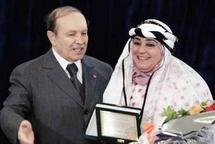Algeria lifts state of emergency after 19 years
AFP
ALGIERS- Algeria on Thursday lifted its state of emergency after 19 years following unprecedented protests last month that threatened President Abdelaziz Bouteflika's decades-old regime, against a background of revolts across the Arab world.
President Abdelaziz Bouteflika has "ordered the cancellation of the extension of the emergency measure put in place by presidential decree on February 9, 1992," said a statement published in the official gazette.

Tuesday it said the move was imminent after it adopted a draft order repealing the emergency measures, which the government adopted when Islamists waged a protracted guerrilla war following the cancellation of local election results in 1991.
Those results would have given a majority to the now-dissolved Islamic Salvation Front.
The state of emergency gave free rein to security forces that effectively served to repress political freedom. The 1990s war turned into a bloodbath, killing up to 200,000 people, according to official figures.
Bouteflika pledged three weeks ago to lift the state of emergency as demanded by the opposition following unprecedented protests last month that left five people dead and more than 800 injured.
The 73-year-old ruler, in office since 1999, also Thursday placed anti-corruption "at the heart" of government action, in what appeared to be a conciliatory move to appease simmering public anger.
"Strongly determined to protect the national economy, the state placed the fight against corruption, parasitic practices and fraud at the heart of its action" he said in a statement read by his adviser Mohamed Ali Boughazi.
The announcement coincided with the anniversary of the creation of the main Algerian labour union (UGTA) and the nationalisation of the oil industry.
Corruption, and the perception that the political elite was plundering the country at the cost of economic hardship, was a key factor behind mass protests across the Arab world, including those that led to the ouster of the leaders of Tunisia and Egypt.
----------------------------------------------------------------------------